M.S.W. concentration in macro practice
The macro practice concentration equips you with the advanced skills needed to drive systemic change. Through a blend of critical and emergent theories and practice, you’ll learn to navigate complex social issues, develop leadership in community and organizational settings, and cultivate transformational relationships. This track emphasizes self-awareness, power and positionality as key elements of understanding and influencing change. You’ll build expertise in values-driven planning, policy strategies and advocacy, while gaining practical tools for resource management, community organizing and effecting meaningful social change.
Availability and admissions
Online
- Full-time pathway (16 months): Fall start
- Full-time pathway (2 years): Fall start
- Advanced standing pathway (1 year): Summer start
- Part-time pathways (3 or 4 years): Fall, summer starts
On-campus
- Full-time pathway (2 years): Fall start
- Advanced standing pathway (1 year): Summer start
Application details + additional learning credentials
Learning objectives
Choosing the macro track means diving into work that is grounded in emergence and critical theories while practicing how to shape change in real-world contexts. You will learn about and actively engage with systems, analyze organizations, facilitate across differences and develop strategies for change that attend to culture, power and practice. The coursework is hands-on, collaborative and designed to help you build both confidence and competence as a macro practitioner.
Members of the macro practice cohort in Spring 2025.
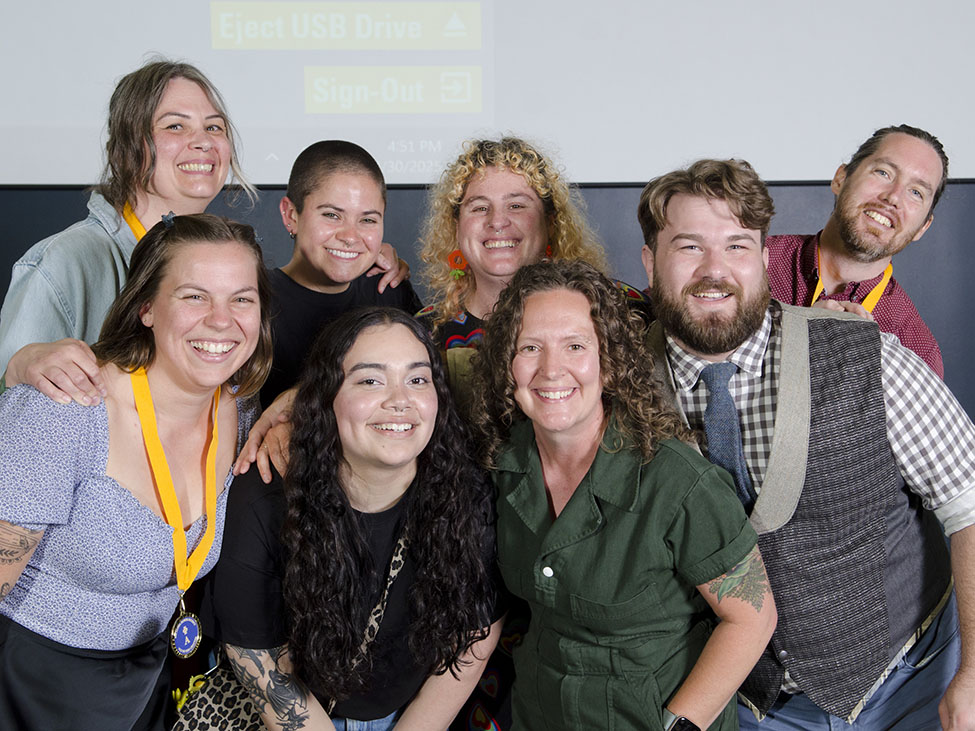

Members of the macro cohort at Lobby Day at the state Capitol in 2020.
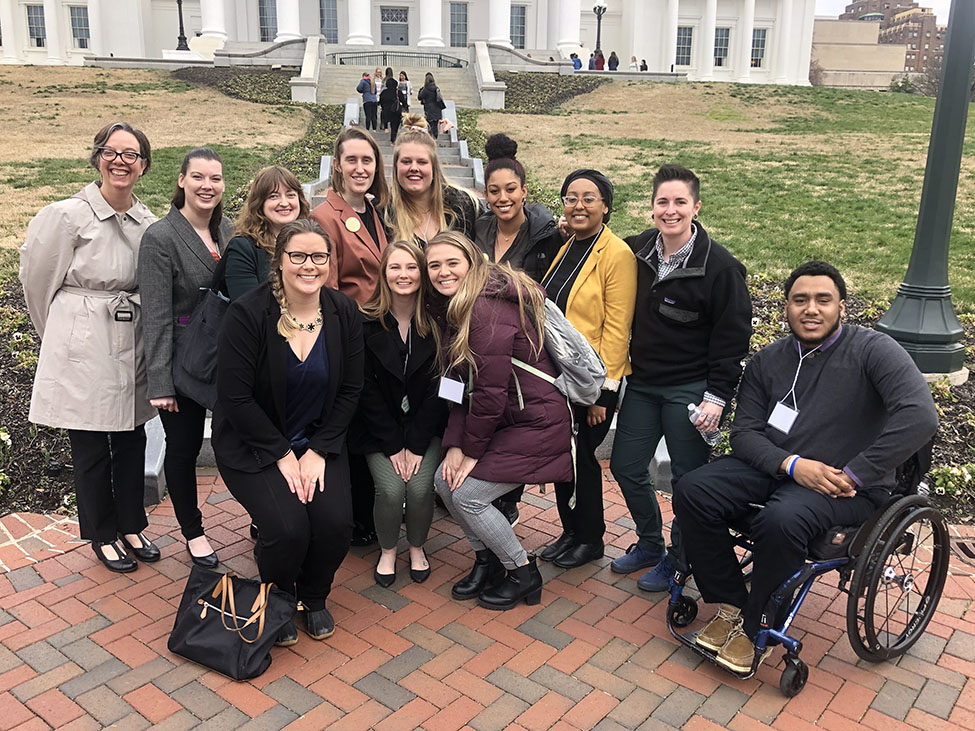

Competencies & behaviors
- 1Sa: Apply ethical values and principles to conducting analysis of social context and planning for change in the context of macro practice
- 1Sb : Apply ethical values and principles to analysis of macro-level issues
- 1Sc: Apply a theoretical framework to ethical decision making when planning for macro change
- 1Sd: Demonstrate ethical practice when engaging in change strategies in increasingly complex sites of change
- 1Se: Demonstrate skills of reflection and professional development to guide judgment and behavior in sites of macro-level change
- 2Sa: Identify social, racial, economic, and environmental injustices as opportunities for advocacy and change.
- 2Sb: Recognize/assess system-level, organizational and community-level contextual factors that inform effective strategies for advancing human rights and justice.
- 2Sc: Engage in advocacy strategies and interventions that address the mechanisms of oppression in sites of change
- 3Sa: Apply anti-racist and anti-oppressive frameworks in macro-level practice
- 3Sb: Reflect a deep understanding of the social worker’s own positionality and social location, including how it informs practice
- 3Sc: Collaborate across differing values and principles at the interpersonal and organizational levels in macro practice
- 3Sd: Identify and analyze the impact of dominant narratives about injustice and macro-level social issues
- 3Se: Identify and advocate for alternatives to dominant models of social change
- 3Sf: Articulate the ways that theory informs approaches to planning and selection of strategies for change
- 3Sg: Demonstrate the importance of engaging in leadership styles and skills outside of the dominant paradigms of practice when assessing and planning for change
- 4Ca: Identify ethical, culturally informed, anti-racist, and anti-oppressive strategies that address inherent biases for use in quantitative and qualitative research methods to advance the purposes of the social work practice specialization
- 4Cb: Apply research findings to inform and improve practice, policy, and programs in the context of the social work specialization
- 5Sa: Understand the social conditions, dominant narratives, and ideologies that have shaped the development, implementation, and outcomes of policies at the federal, state, and local levels.
- 5Sb: Use multiple critical analysis frameworks to analyze how social welfare policies affect current social problems.
- 5Sc: Apply knowledge of anti-racism and anti-oppressive practice to advocate for policies that advance justice.
- 6Sa: Apply knowledge of human behavior and social environment, person-in-environment, and other multidisciplinary theoretical frameworks to engage with macro systems and sites of change
- 6Sb: Identify factors that impact a social worker’s ability to engage empathically across paradigmatic approaches to change in collaborative spaces
- 6Sc: Practice empathy, reflection, and interpersonal skills when engaging across systems on macro-level analysis and problem-solving
- 7Sa: Critically analyze and apply research and other forms of existing knowledge to inform needs assessment in macro practice
- 7Sb: Articulate cultural responsiveness when designing assessments for sites of change
- 7Sc : Demonstrate cultural respect and humility when assessing needs in sites of change.
- 7Sd: Demonstrate ability to assess power, both formal and informal, in macro contexts
- 8Sa: Demonstrate the capacity to facilitate ethical planned change at the macro level
- 8Sb: Critically analyze and apply research and other forms of existing knowledge to inform planning for change in macro practice
- 9Sa: Understand distinctions between and value of employing a variety of approaches to planned change evaluation
- 9Sb: Develop an evaluation plan for the implementation, outcomes, and impacts of planned change at the macro level
Example course assignments
Strategies for Social Work Planning and Administrative Practice (3 hours)
Assignment: Strengthening Organizations
Interview key staff in an organization and design a culturally responsive and power-aware assessment tool to learn about how understanding concerns can lead to interventions for strengthening organizations.


Social Work Planning and Administrative Practice I (3 hours)
Assignment: Case Study Role Play
Step into the role of facilitator or organizational leader in a simulated partnership meeting, practicing collaboration, navigating conflict, and moving groups toward shared agreements on critical issues.


Social Work Planning and Administrative Practice II (3 hours)
Assignment: Plan for Change
After conducting a deep analysis of root issues, work in teams to design a detailed strategy for change that includes goals, structure, evaluation, and budget, then present your plan to a panel of community practitioners for real-time feedback.


Meet some of your macro instructors
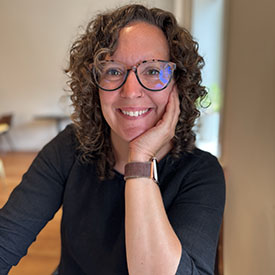



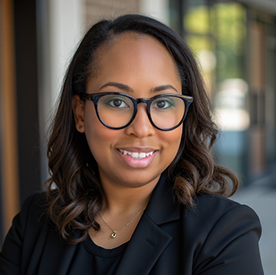

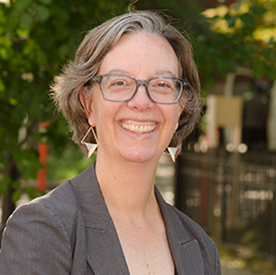

Meet our Macro Fellows
In addition to Dr. Compton and Dr. Wagaman, the following alumni are participating in the fellowship program. Learn about the work they are doing as macro social work practitioners.
Deja Braxton, M.S.W.'18
Quality assurance and risk management
Focus
Disability Justice
Why Macro?
Growing up as a double minority and person with invisible disabilities, I have lived experience of the impacts of social inequity. I believe that we have to address the causes of injustice and inequality at the roots, which are embedded in the foundation of our systems. Through macro work, I believe we can dismantle, repair and restore systems to build a more fair, equitable and loving society.


Cortney Calixte, B.S.W.'15, M.S.W.'17
Virginia Sexual and Domestic Violence Action Alliance
Focus
Movement Building + Policy Advocacy
Why Macro?
I wanted to run for office as a way to help people or be of some service to the world. Then I realized that it was way too public-facing. I’m an introvert that wants some control over when I can be an introvert, and I wanted to have a different relationship/connection with people that politics doesn’t really allow for.
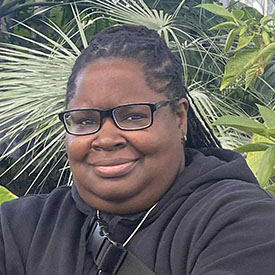

Maryn Campbell, M.S.W.'20
Outreach director for U.S. Rep. Jennifer McClellan
Why macro?
Issues in our society are systemic, and we can only address these issues by challenging the institutions, cultures and norms that implement harmful policies and systems. Macro is the avenue that allows us to do so.
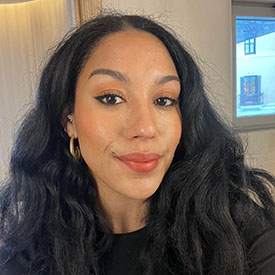

Adrienne Cooley, B.A.'18, M.S.W.'23
Macro social worker
Focus
Research, Evaluation & Planning
Why Macro?
I’m drawn to the work of understanding and transforming systems. I’m particularly interested in the ways in which social and cultural structures shape our thoughts and imaginations. If social work is intended to make the world a better place, I think macro work is critical to understanding what we mean by “better.”
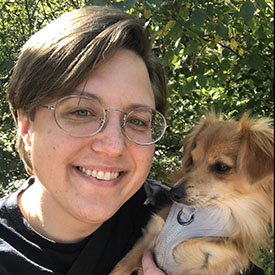

Briany Cruz, B.S.W.'23, M.S.W.'25
Benefit specialist, Richmond City DSS
Why Macro?
I chose macro because I have always had a passion for learning more about the way policy and systems have impacted people negatively and positively. I wanted to make these kinds of systemic changes, whether through leadership roles or organizational change.
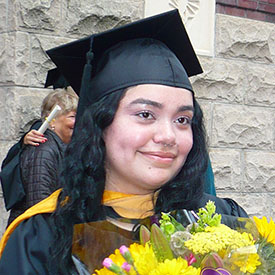

Yvonne Fox, M.S.W.'18
Policy analyst, Chapin Hall
Focus
Policy Analysis + Systems Change
Why Macro?
I pursued an M.S.W. expecting to get a license to counsel sexual assault survivors. I worked as an evening support staff with youth transitioning out of foster care, and absolutely fell in love. Only problem was, supporting young people felt like holding sand in my hands. I couldn’t serve them well enough, with everything facing them systemically. I decided to use my experience to pursue a career in child welfare policy.
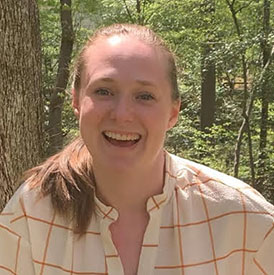

Caitlyn Joseph, M.S.W.'24
Eviction court navigator, United Way of the Virginia Peninsula
Focus
Legal Navigation + Housing Justice
Why Macro?
I want to engage with people, communities, organizations and institutions to address the larger issues that impact the daily problems we see. By transforming and uprooting long-held beliefs, practices and inequities in our society, we can collectively imagine, build and thrive in a world that was meant for all people and nature to thrive in community with one another.


Kapria Lee
Senior policy associate, social & economic mobility, the American Public Human Services Association
Focus
Systems Transformation
Why Macro?
I love helping to improve systems for families and thinking about how to connect policy, practice and research. I also love thinking about how we can integrate community voices deeper into systems change, and how thinking outside of the box can help create a better world for all of us.


Rachael Randall, M.S.W.'19
The Spark Mill
Focus
Consulting + Strategic Planning
Why Macro?
I want racism to end ,and I’m most interested in finding new less-violent options to replace it. This is work I can do throughout my life without getting burnt out to do it, and macro practice has given the tools and confidence to do this work in a variety of ways.
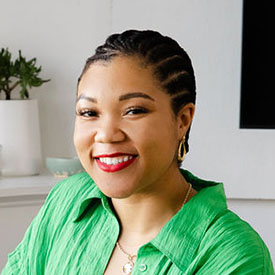

Erin Trimmer, B.I.S.'22, M.S.W.'25
Community organizer
Focus
State & Local Housing Justice
Why macro
I love when folks feel empowered to come together and build lasting power and change for their communities. I enjoy systems-level thinking and how a small shift at the macro level can create big change.


Past Fellow
Ramiel Martinez, M.S.W.'24
Leadership Academy coordinator, Virginia Community Voice
Focus
Community Leadership + Organizing
Biography
As a leadership academy coordinator, Ramiel works with Black and Latine neighbors in Southside Richmond to build authentic relationships and support community-led leadership. Their work focuses on empowering residents to see their lived expertise as the foundation for systemic change, designing and facilitating spaces where neighbors redefine leadership and engage local government.
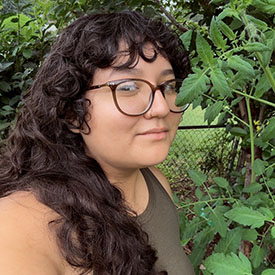

Discover the school's Macro Initiatives
In addition to the Macro Fellows, the school offers events for students to learn more about macro practice; holds an annual Social Work, Policy and Politics event; and offers a macro-focused scholarship. Learn more